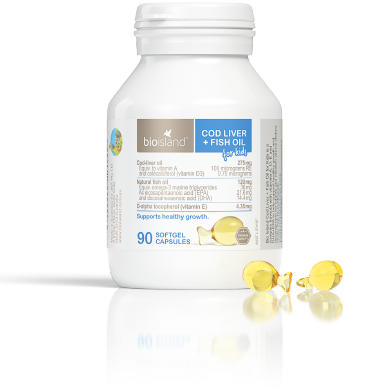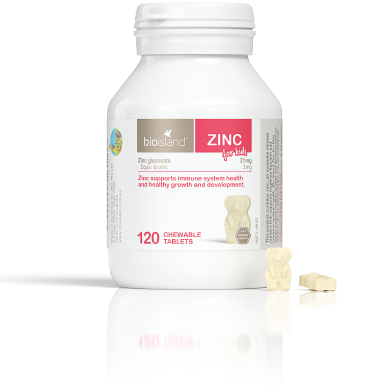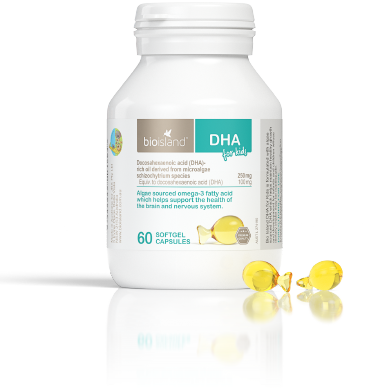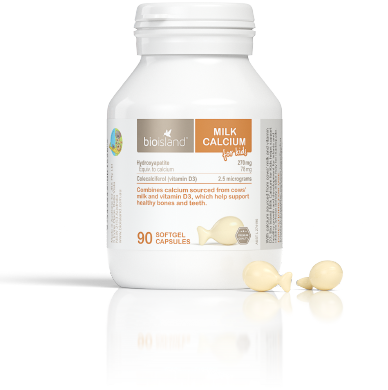
Vitamin A
As different foods contain different forms of vitamin A, it is imperative that we consume a wide variety of foods to ensure we are getting all the nutrients that help our bodies to function.
By Bio Island Nutrition Team
WHAT IS VITAMIN A AND WHAT ROLE DOES IT PLAY IN OUR BODIES?
Vitamin A is a fat-soluble vitamin and antioxidant involved in numerous biochemical processes within the body. It is not just one single vitamin but rather a group of compounds. Vitamin A occurs in 2 main forms; preformed vitamin A is found in animal products and easily absorbed by the body whereas provitamin A carotenoids are found in plant foods especially those with a deep yellow, red or green colour and must be metabolised before it can be used by the body.
Vitamin A plays a role in vision, cell and immune function, reproduction and growth and development. As an antioxidant, vitamin A protects the body from free radicals causing oxidative stress within the body. Vitamin A, however, is most widely known for the role it plays in maintaining healthy vision and healthy eye function. A deficiency in vitamin A can often result in night blindness or complete blindness.
WHAT IS THE RECOMMENDED DAILY INTAKE (RDI)?
The amount of vitamin A your body requires will depend on your age and sex as this largely influences your bodies requirements for the nutrient. In Australia, the Recommended Daily Intake for vitamin A have been set as the following:
|
Boys & Girls |
1-3 years |
300 µg/day |
|
Boys & Girls |
4-8 years |
400 µg/day |
|
Boys & Girls |
9-13 years |
600 µg/day |
|
Boys |
14 – 18 years |
900 µg/day |
|
Girls |
14-18 years |
700 µg/day |
|
Men |
19-70+ years |
900 µg/day |
|
Women |
19-70+ years |
700 µg/day |
|
Pregnant Women |
14-18 years |
700 µg/day |
|
Pregnant Women |
19-50 years |
800 µg/day |
|
Lactating Women |
14-50 years |
1,100 µg/day |
* µg = micrograms
HOW DO I GET VITAMIN A? WHICH FOODS ARE HIGH IS VITAMIN A?
As different foods contain different forms of vitamin A, it is imperative that we consume a wide variety of foods to ensure we are getting all the nutrients that help our bodies to function. The best sources of preformed vitamin A are animal foods such as liver especially fish-liver oil, eggs, red meat, tuna and dairy products particularly milk. Provitamin A carotenoids are found in plant foods such as sweet potato and carrots or other yellow and orange vegetables, yellow and orange non-citrus fruits and dark green leafy vegetables such as spinach.
100g of carrots or sweet potato will give you approximately 900µg and 100g of tuna will get you approximately 750µg. Even just 2 eggs will give you 200µg which for most people will equate to 30% of their recommended daily intake.
It is important to note that cooking can destroy up to 40% of the vitamin A content in animal foods.
WHAT ARE THE SIGNS OF A VITAMIN A DEFICIENCY?
The most common symptom of a vitamin A deficiency especially in children and pregnant women is night blindness which left untreated may lead to complete blindness longer term. Other signs and symptoms of a vitamin A deficiency include increased susceptibility to infections and compromised immune function, poor dental health, reduced reproduction capabilities, skin disorders and thyroid disorders.
If you are worried about your vitamin A levels or potential deficiency, please consult with your doctor who can perform a blood test to check your levels.
IS VITAMIN A TOXIC? ARE THERE ANY SIDE EFFECTS FROM EXCESSIVE CONSUMPTION?
As a fat-soluble nutrient, vitamin A can be stored in the body for long periods of time. The body also has limitations when it comes to getting rid of excess vitamin A in the body meaning it can easily accumulate to toxic levels when intake exceeds the body’s requirements, therefore it is important to only take vitamin A supplements under the supervision of your doctor or healthcare professional. In pregnant women, too much vitamin A may cause birth defects.
Symptoms of vitamin A toxicity may include nausea and vomiting, dizziness, blurred vision and headaches. Dry skin, cracked lips and coarse or sparse hair could also be indicative of a toxic load.
This information does not take into account your personal situation and is general in nature. You should consider whether the information is appropriate for your needs and seek professional medical advice.
Always consult your healthcare professional before taking any supplements or if any concerns arise.




